Indigenous Governance Database
self-determination
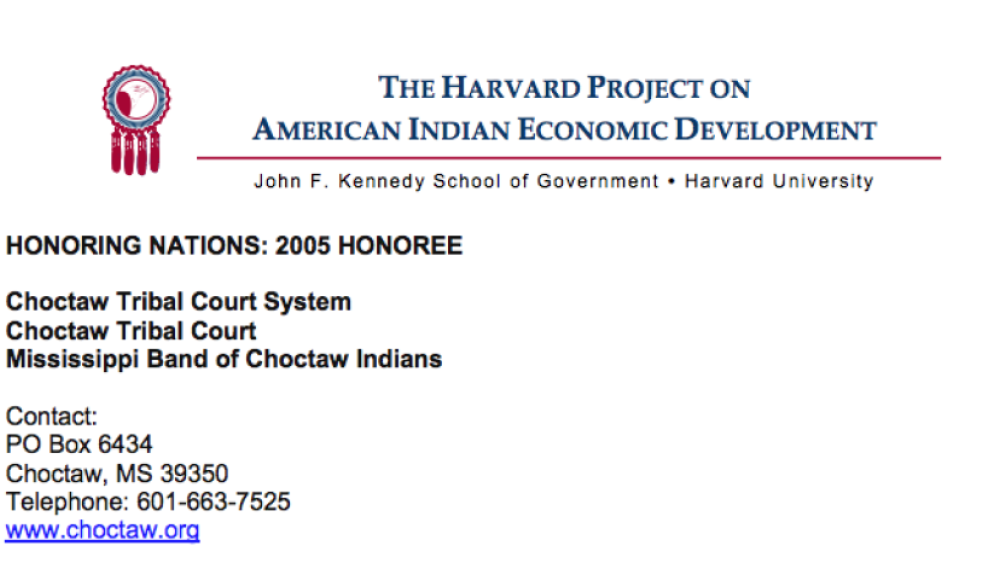
Choctaw Tribal Court System
Self-determination is the guiding principle behind all of the government initiatives undertaken by the Mississippi Band of Choctaw Indians. This nation has created a vibrant economy while investing resources into the preservation of Choctaw language and culture. At the heart of its success is its…
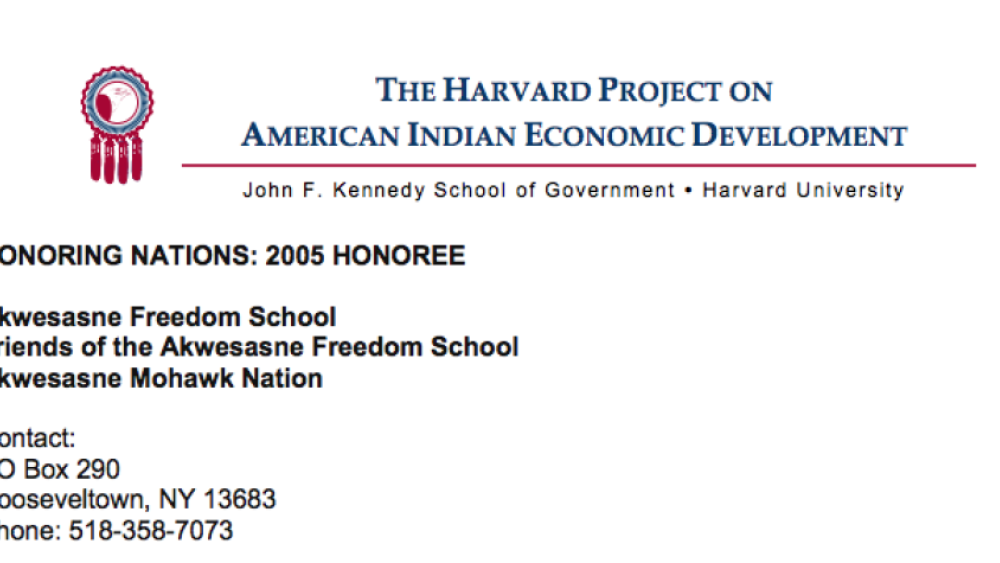
Akwesasne Freedom School
In 1979, the Akwesasne Freedom School took form out of the Mohawk struggle for self-determination and self-government. It is characterized by a deep commitment to the maintenance of Mohawk identity. Students in this pre-kindergarten through 8th-grade language immersion school begin and end each…
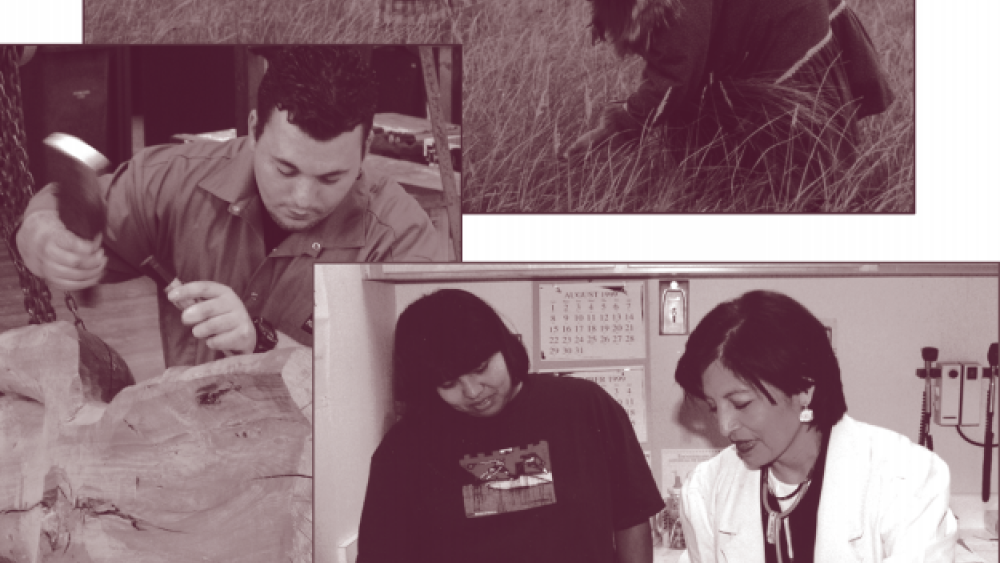
Indigenous Peoples, Poverty and Self-Determination in Australia, New Zealand, Canada and the United States
Australia, New Zealand, Canada and the United States are among the world’s wealthiest nations. It is an often noted irony–and an occasional source of embarrassment to the governments of these countries–that the Indigenous peoples within their borders are in each case among their poorest citizens.
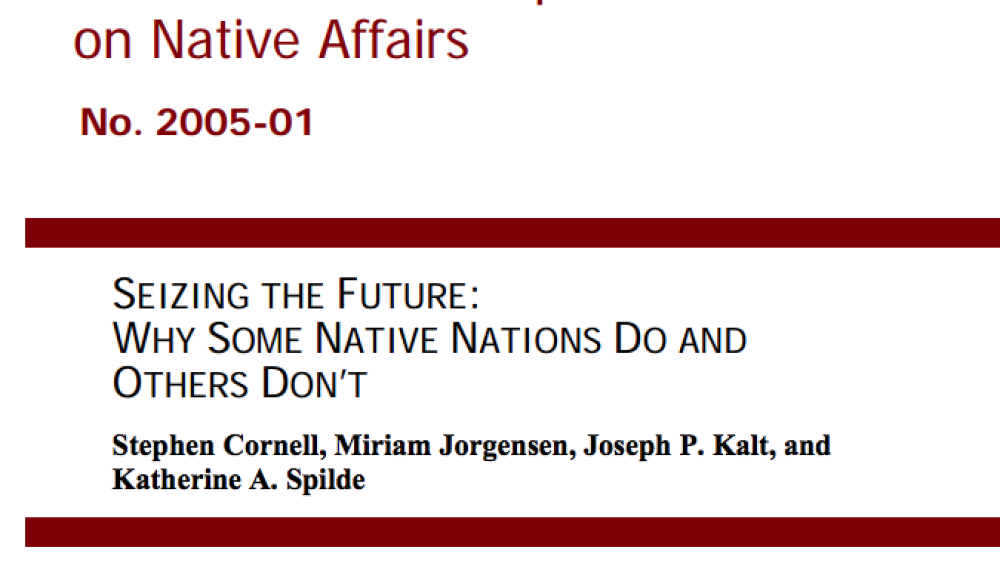
Seizing the Future: Why Some Native Nations Do and Others Don't
Both research and the experience among Native nations daily drive home the conclusion that the so-called "nation-building" approach holds the keys to self-determined social, political, and economic development for indigenous communities. This approach emphasizes the critical role of asserting…
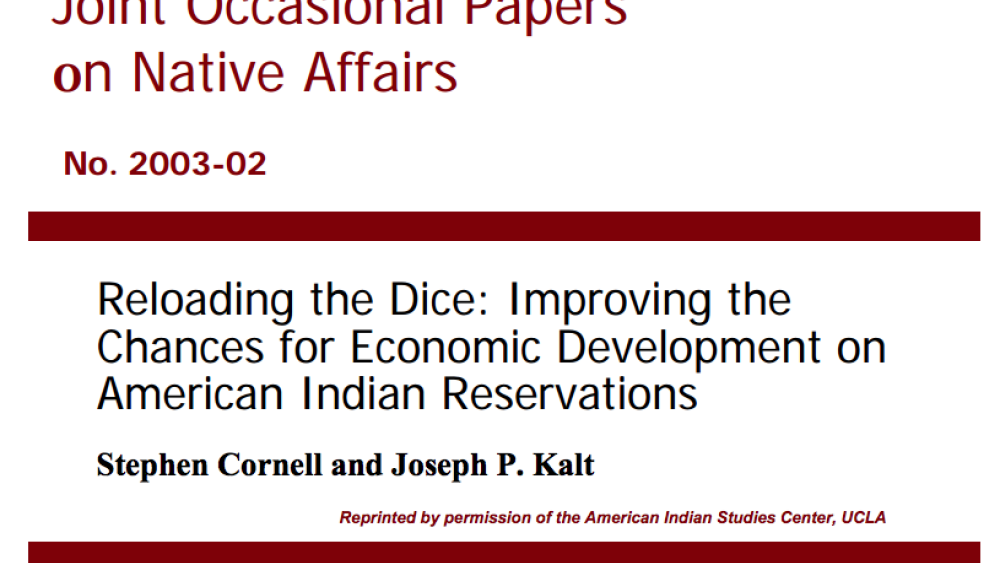
Reloading the Dice: Improving the Chances for Economic Development on American Indian Reservations
The experiences of a wide array of societies around the world amply demonstrate that achieving sustained, self-determined economic development is a complex and difficult task. Certainly this is the case on the Indian reservations of the United States, where numerous obstacles face tribal leaders,…

Social and Economic Consequences of Indian Gaming in Oklahoma
Much has been written in the mainstream press about Indian gaming and its impact on Indian and non-Indian communities. The debate, however, tends to be focused on Class III or “casino-style” gaming. The effects of Class II gaming have largely been overlooked by the press and, unfortunately, by the…
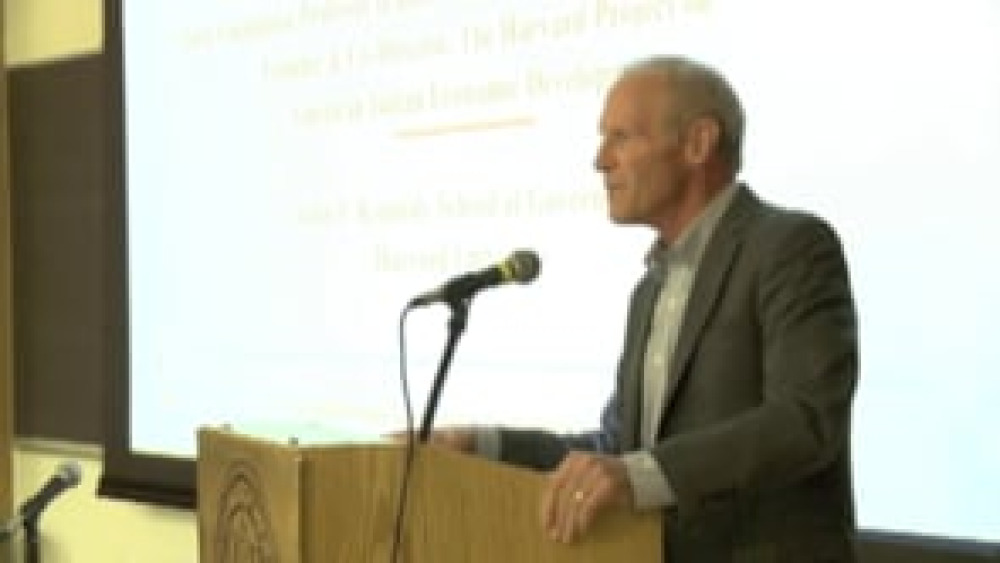
Good Native Governance: Lunchtime Keynote Address
UCLA School of Law "Good Native Governance" conference lunchtime keynote speaker, Joseph P. Kalt discusses research in the areas of good Native governance. This video resource is featured on the Indigenous Governance Database with the permission of the UCLA American Indian Studies Center.
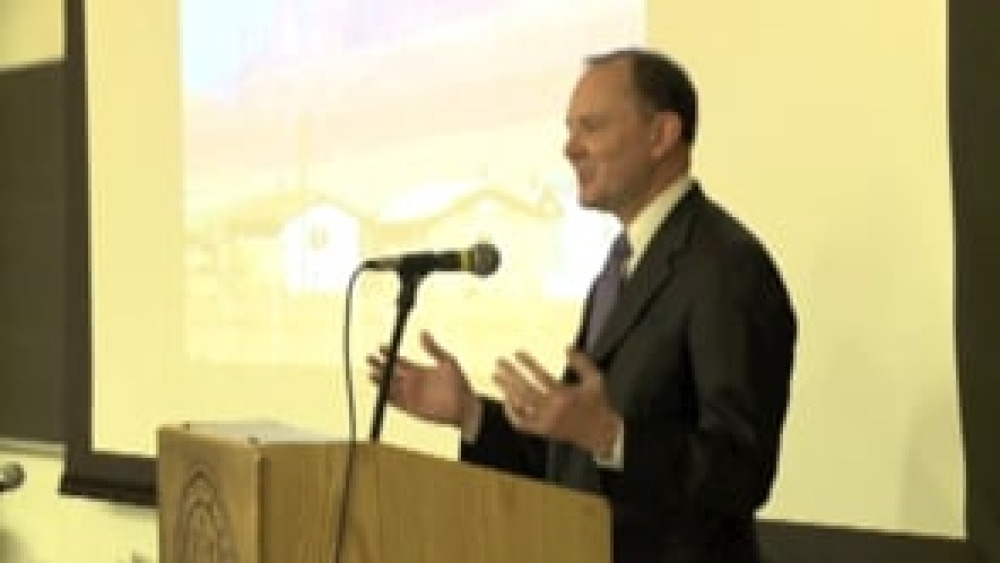
Good Native Governance: Keynote Address
UCLA School of Law "Good Native Governance" conference keynote speaker, Kevin Washburn, Assistant Secretary — Indian Affairs for the U.S. Department of the Interior, examines how Native nations are engaging so well in self-determination through good governance. This video resource is featured on…
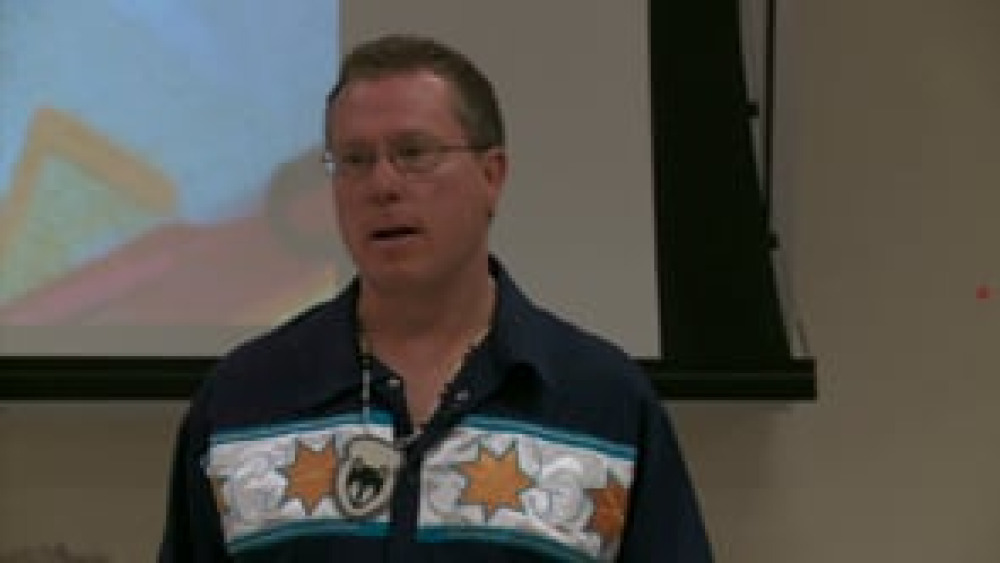
Jeff Corntassel: Sustainable Self-Determination: Re-envisioning Indigenous Governance, Leadership and Resurgence
Scholar Jeff Corntassel (Cherokee) lays out his comprehensive explanation for what sustainable self-determination entails for Indigenous peoples in the 21st century, and provides examples of some of the ways that he and others are engaging in small and large acts of resurgence that contribute to…

Jennifer Porter: Cultural Match Through Constitutional Reform at Kootenai
In this informative interview with NNI's Ian Record, Vice-Chairwoman Jennifer Porter of the Kootenai Tribe of Idaho explains what prompted her nation to enact several amendments to its constitution in the mid-1990s, and how its ability to govern effectively has been greatly enhanced by its decision…
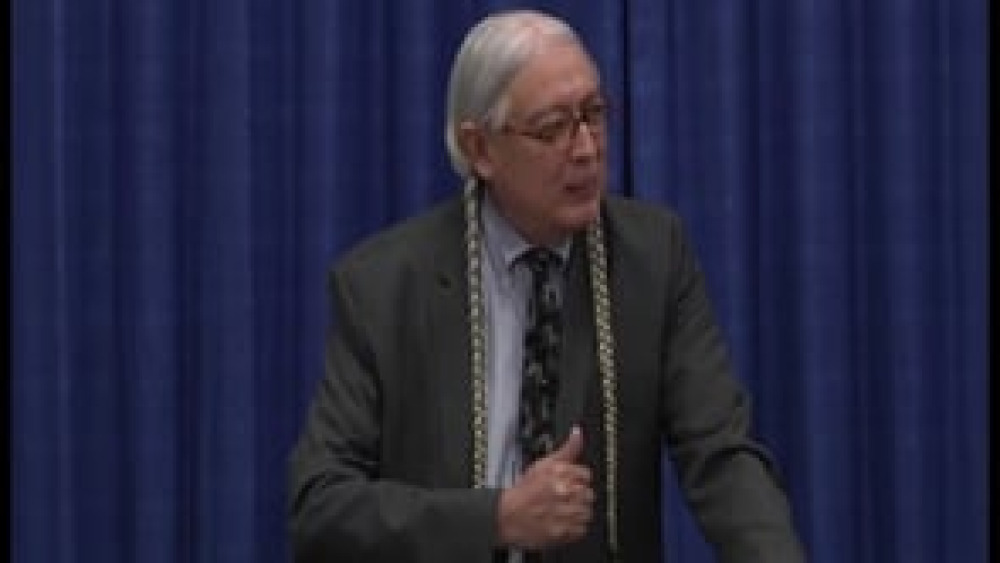
Walter Echo-Hawk: In the Light of Justice: The Rise of Human Rights in Native America & the U.N. Declaration of the Rights of Indigenous Peoples
Walter Echo-Hawk, legendary civil rights attorney, discusses his latest book In the Light of Justice: The Rise of Human Rights in Native America & the UN Declaration of the Rights of Indigenous Peoples, stressing the need for Native nations and peoples to band together to mount a campaign to…

Suzan Shown Harjo: Five Decades of Fighting for Tribal Sovereignty and Self-Determination
In this wide-ranging interview, longtime Native American rights advocate Suzan Harjo discusses her involvement in the development and ratification of the American Indian Religious Freedom Act, the Native American Graves Protection and Repatriation Act, and the legislation creating the National…
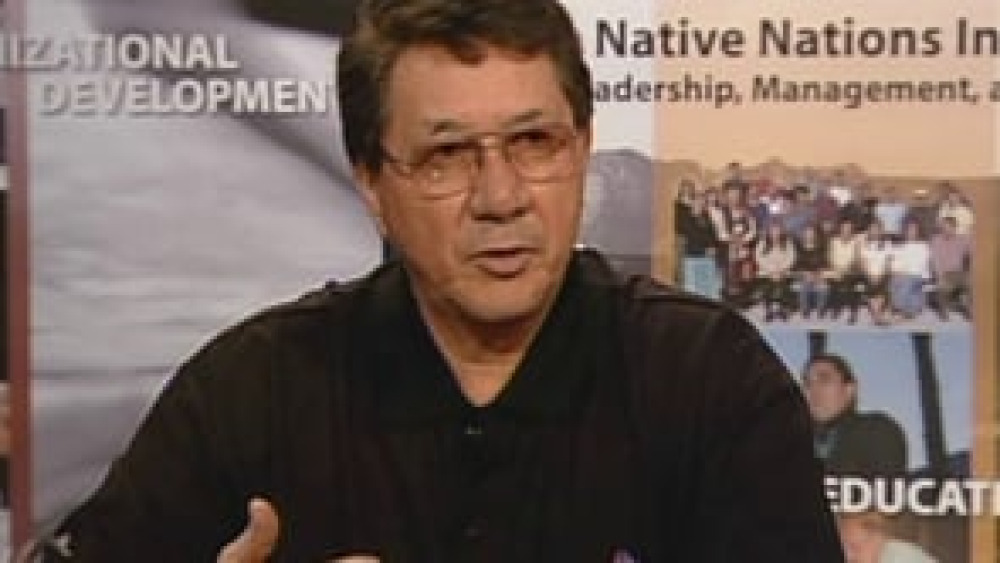
NNI Indigenous Leadership Fellow: Michael Kanentakeron Mitchell (Part 1)
Grand Chief Michael Mitchell of the Mohawk Council of Akwesasne provides an overview of the nation-building work his nation has engaged in over the past four decades, from its decision to move away from the Indian Act to its systematic development of capable governing institutions designed to…

Honoring Nations: Julie Wilson: Child Welfare in Indian Country
Scholar Julie Wilson opens the session "Family Strengthening in Indian Country" with a discussion of recent research conducted by the Harvard Project on American Indian Economic Development that explores the role families play in improving child and community welfare in Indian Country, highlighting…
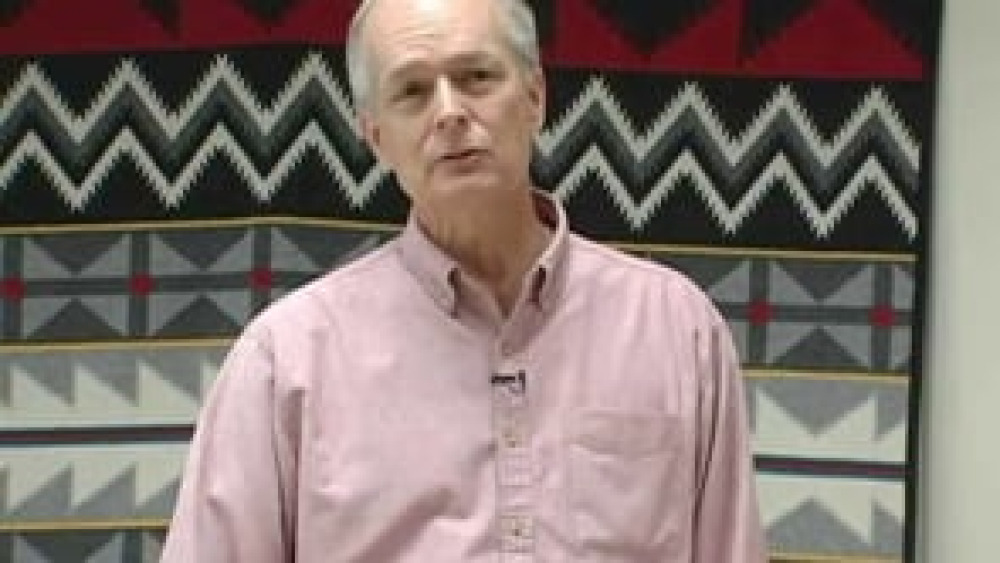
From the Rebuilding Native Nations Course Series: "Self-Determination and Governance Are Related"
Harvard Project on American Indian Economic Development Co-Director Stephen Cornell stresses the importance of Native nations exercising sovereignty effectively over time as an important way to defend their sovereignty.
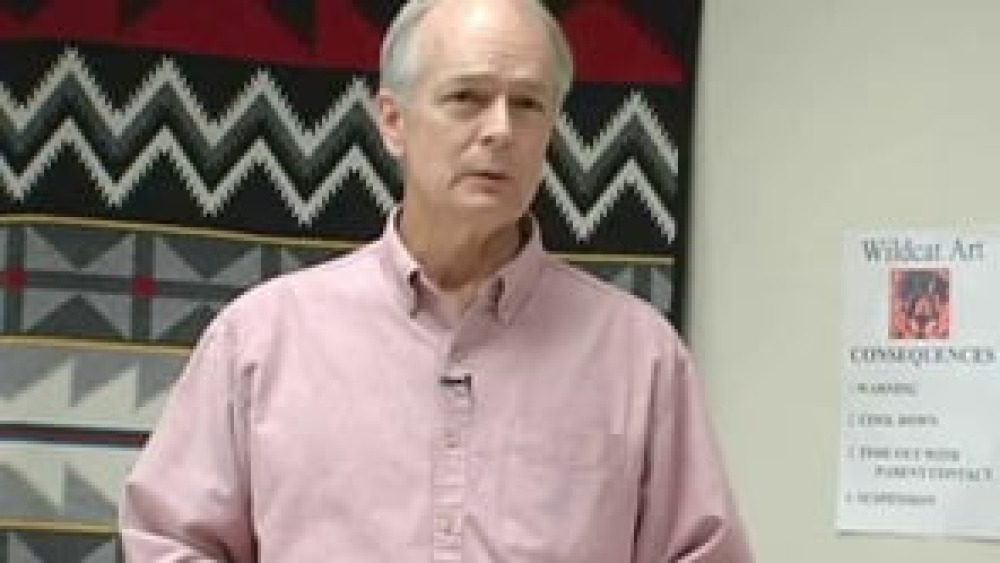
From the Rebuilding Native Nations Course Series: "The Governance Challenge"
Harvard Project on American Indian Economic Development Co-Director Stephen Cornell differentiates between the challenge that Native nations face in having their rights of self-determination recognized and the governance challenge that they face once those rights are recognized.
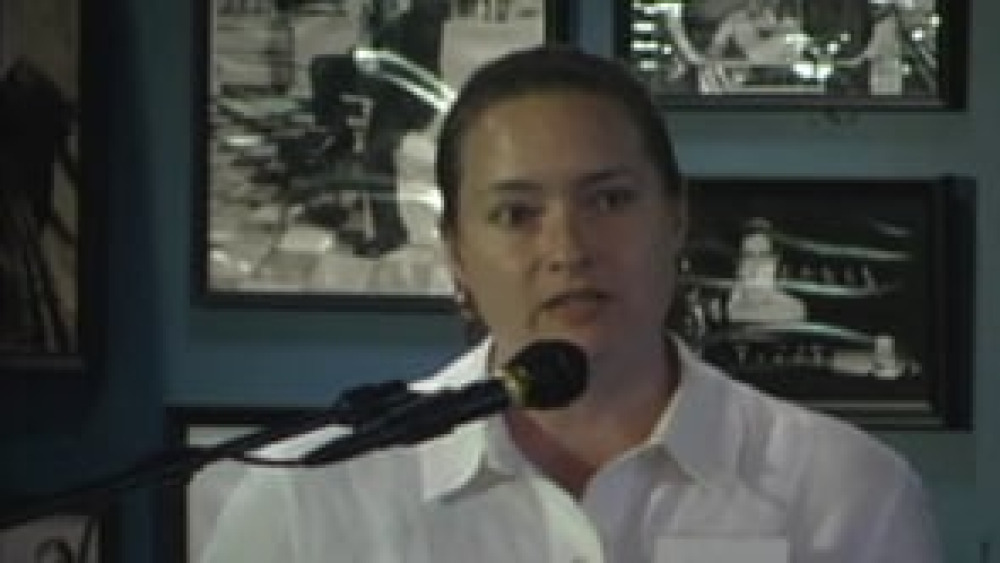
Honoring Nations: Miriam Jorgensen: Lessons to Take Home
NNI Research Director Miriam Jorgensen concludes the 2004 Honoring Nations symposium with her impressions about the lessons learned from the convening, from the great diversity among Native nations to the great strides they are taking when they devise their own solutions to the challenges they face…
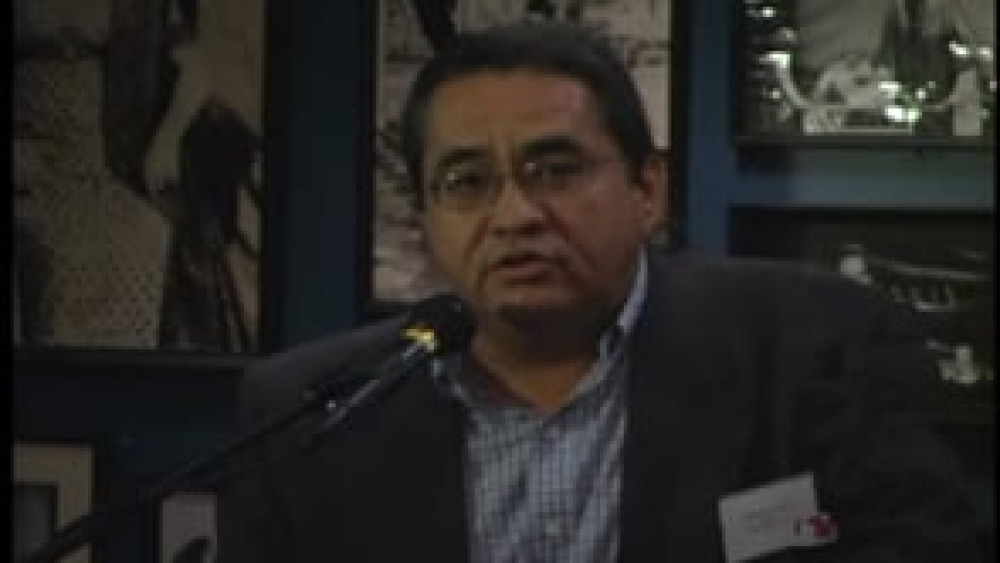
Honoring Nations: Manley Begay: Reflections on the Day
Harvard Project on American Development Co-Director Manley A. Begay, Jr. synthesizes the learning that took place during the first day of the 2004 Honoring Nations symposium, focusing on the nation-building success stories chronicled during the day as testaments to and reflections of Indigenous…

Honoring Nations: Miriam Jorgensen: Achieving Good Governance: Cross-Cutting Themes
Miriam Jorgensen, Director of Research for the Native Nations Institute and the Harvard Project on American Indian Economic Development, shares the cross-cutting themes of good governance that exist among the Honoring Nations award-winning programs.
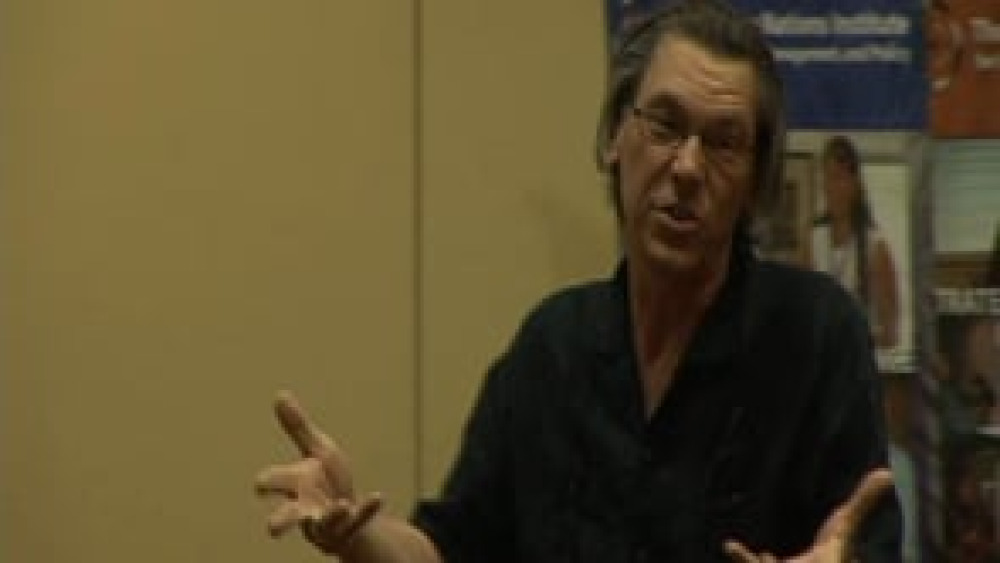
Robert A. Williams, Jr.: Law and Sovereignty: Putting Tribal Powers to Work
University of Arizona Professor of Law Robert A. Williams, Jr. provides an overview of the U.S. government's centuries-long assault on tribal sovereignty -- in particular the ability of Native nations to make and enforce law -- and stresses the importance of Native nations systematically building…
